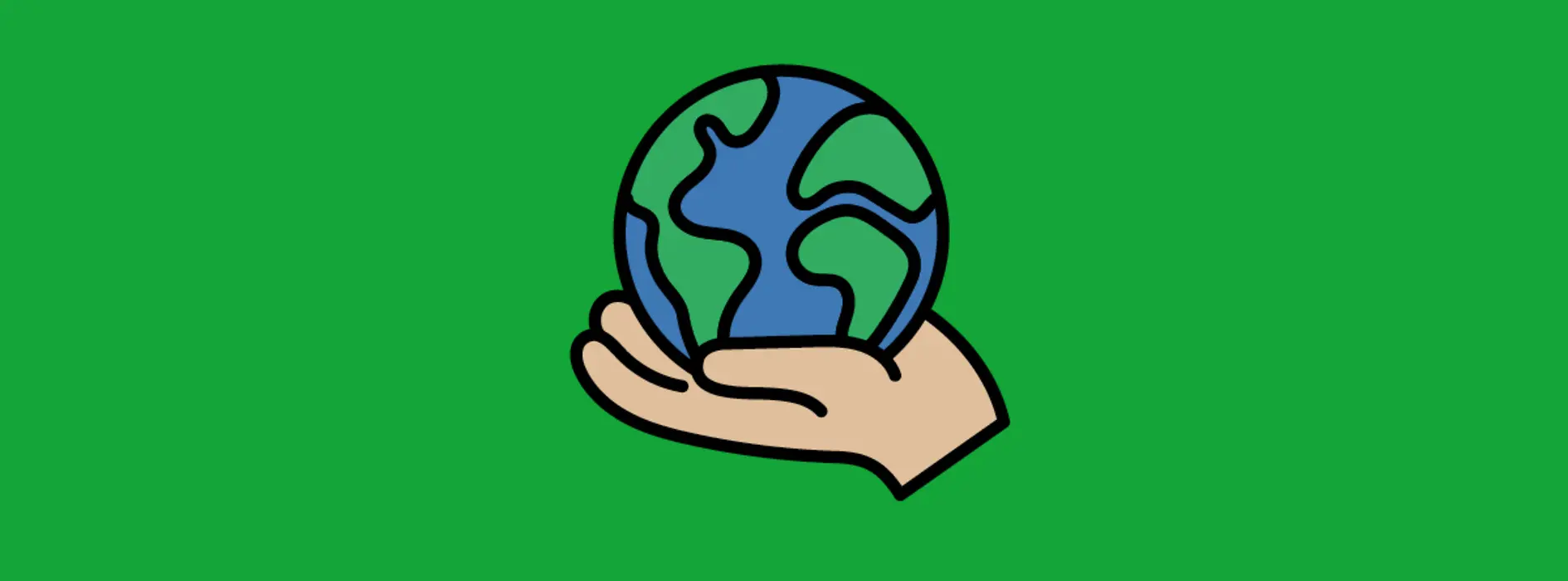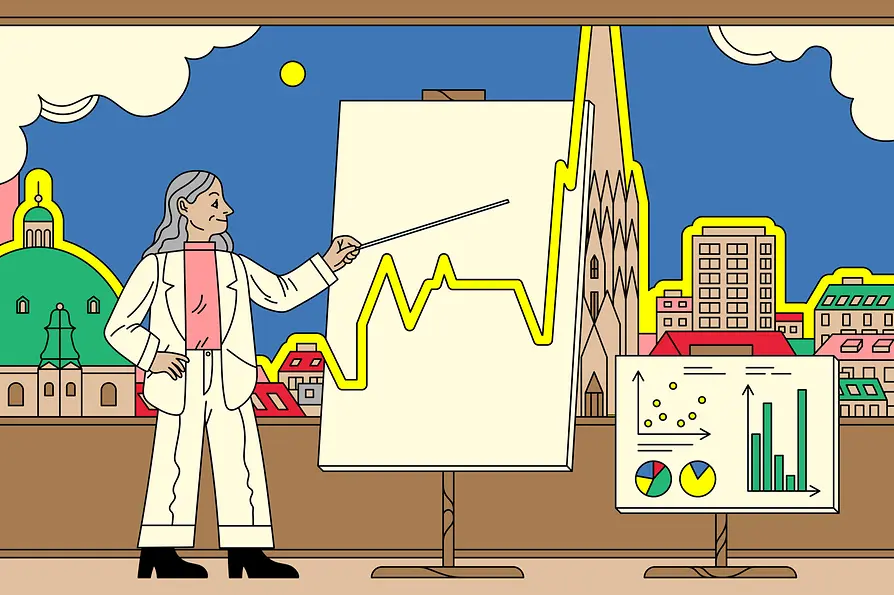No Bullsh*t Pioneers
Doing business with a clear conscience
Prioritizing sustainability involves a significant outlay: but the investment pays off in the long run, as shown by these examples from Vienna.
The economy needs growth, the city needs growth and tourism needs growth. But to avoid placing an undue burden on the resources that Vienna has to offer, the latter is increasingly looking to sustainability as the way forward. For many of the businesses in the Visitor Economy, this is not just something they feel strongly about – in these times of high energy costs, it is a matter of survival . The City of Vienna and the Vienna Tourist Board are doing their level best to provide them with the necessary support.
If you want the benefits, you have to make it happen
In some cases, it is flagship businesses that are leading the way by setting an example. In 2004, the Hotel Sacher, to pick one such instance, made the switch to district heating and district cooling, to source the hot and cold water needed to heat and cool the building. The energy for this comes from a mix of industrial waste heat, combined heat and power plants and waste incineration. Wien Energie makes it easy for companies to become more climate-friendly through this service. And in other cases it could be the smallest of companies, which are also taking part in the pioneer movement. Even one of the city’s sausage stands has achieved organic certification, and only sells locally-sourced products. Aluminum and plastic: gone.
“To start with, savings tend to pay off quickly," explains Bertram Häupler from the OekoBusiness Vienna business service. Set up in 1998, the program helps companies to implement environmentally friendly measures and obtain certification. So far, 1,600 companies have benefited from its consulting, achieving impressive results along the way. “If you want long-term benefits, you have to get out there and do something to make it happen,” he adds. “The longer that companies participate in OekoBusiness Vienna, the more likely it is that sustainability will become a genuine corporate strategy and shape the investments they make. And that's where we are seeing the biggest impact.” Museums, theaters, congress centers – green events being the watchword here – and the retail sector are also increasingly focusing on sustainability. IKEA at Vienna’s Westbahnhof station is an example of this in action: no parking facilities but a subway connection, solar power, heat pump, carbon-neutral deliveries, a green building with 160 trees, and an event area on the roof where visitors and locals alike can come together without any obligation to buy anything. But why exactly are more and more businesses in the Visitor Economy choosing to prioritize sustainability?
There’s a clear market for It
Because tourism, in the view of Michaela Reitterer from Boutiquehotel Stadthalle, will only be accepted by local residents in future if it becomes more sustainable. So it needs to be very forward-looking. “We’ve put a lot of effort into becoming the first city hotel to have a zero-energy balance as well as the first SDG hotel: through a combination of photovoltaics, solar power, and cutting out major energy guzzlers. But we’re also pioneers with a joined-up organic concept as well as “upcycling rooms”. And anyone who arrives by bike or train gets 10% off!” she adds. And she believes there is a market out there which appreciates that. Astrid Kahl-Schaban from Hotel Gilbert takes a similar line: “In addition to a green facade and a greened flat roof, there are lots of plants inside the hotel – which has a positive effect on ambient temperatures. Waste reduction and organic cosmetics are also key topics for us. While she confirms that the initial financial outlay cannot be recouped immediately, she thinks that it sends out a signal that it is possible to operate successfully and sustainably. And there is a demographic that’s prepared to pay a little bit more for a room, provided that there’s a rationale behind it.
Green Events: a marketing advantage
In his popular bar, Rudi Konar from Strandbar Herrmann reveals that the drive to increase efficiency has proved to be a source of inspiration for the entire team. He notes that everyone enjoys doing business sustainably and it’s brought all employees on board because it’s so important: “This was actually how the idea came up to use water from the washbasins to flush the urinals. We ask people if they want a straw for their drink. Our solar panels supply a third of our electricity. The lights in the storage area are motion activated, and at the end of the season, we auction off the deck chairs for a good cause. We buy cleaning supplies in bulk and the containers they come in are collected again, so there’s no plastic waste. After their second year with us, we give our employees an annual pass for the Wiener Linien public transportation system. I believe the most important thing is the learning effect – being aware of the costs as well as the resources you use. Soon enough, every business owner will look to make savings. But will this actually give us a competitive advantage? Probably. We’re ecolabel certified and ideally placed to host green events.
First ask what the advantages are
One of the large businesses that is focusing on sustainability is the Luftburg-Kolarik restaurant in Vienna’s Prater park. With 1,200 seats, it is the largest fully-certified organic restaurant in the world. In 2023, it won the EU Organic Award for Best Organic Restaurant. To start with, the idea was simply to do something to help make society better – “because there is no Planet B,” as Paul Kolarik puts it. In 2019, the restaurant made the switch to organic only. But a lot of other things have changed since then.
Measures that have already been implemented include evaluating and optimizing portion sizes and avoiding waste, switching to an Austrian smart home system, solar panels, bee colonies on the roof and leafy plane trees in the garden that provide shade in summer. 2025 will bring a major remodel, when the entire employee area will be redesigned. The dishwashing and delivery areas are also being optimized to improve processes and cut energy consumption. The photovoltaic system is being expanded, and heating and cooling will be powered by hydro in future – meaning that the Luftburg really is "out of gas".
More grants, less Red Tape
“We keep asking ourselves what will this achieve, rather than starting with what does it cost. We take our environmental, social and economic responsibilities very seriously,” Kolarik explains. “While the investments we are making now are expensive, the benefits will definitely outweigh the costs over the long term. Our approach to the topic is that the success of our operations shouldn’t suffer because of it.” There is one point that all of the business owners agree on: they want more grants – and fewer rules, not more. They worry that too much red tape and excessive regulation could put a brake on the switch to sustainability.


